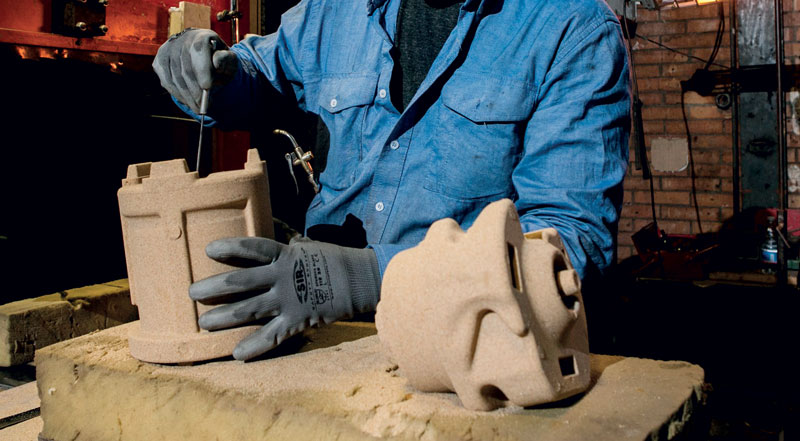Assofond, the Congress is Online: “An Innovative Challenge”
The health emergency did not stop the 35th National Foundry Congress, which took place online on November 12th -17th with a special focus on innovation and human capital
The current anti-Covid19 lockdown has virtually overturned the ways, times and methods of communication between people and between companies. Today all conferences, meetings, important trade fairs and other events have had to adapt to the new virtual reality. Even the usual National Foundry Congress, the traditional event promoted by Assofond – the Confindustria association representing the Italian foundry sector – was no exception; on the contrary, it took advantage of the opportunity to extend participation and invitation to many more people and companies. This was definitely a sign of vitality in response to current communication difficulties. Dedicated to ferrous and non-ferrous metal foundries and to innovations in the industry, the conference is now in its 35th edition, and the event, which is held every two years, actually took place totally online, open to the public and free of charge.
“The health emergency imposes restrictions and we took advantage of them to turn them into innovative challenges”, Roberto Ariotti, President of Assofond, stated. “Innovation and human capital will also be at the centre of much of the reports which will characterise the first days of the congress. We had already followed this path before the pandemic, and the facts forced us to accelerate in this direction. Foundries today are a decisive asset for many different production chains. They are a model of environmental sustainability. They are the basis of manufacturing. They are also widespread in everyday life. “Where you don’t expect it, foundries are there” is the motto we came up with two years ago at the Assofond rebranding. Today, with our Congress, we want to reaffirm this message”.

A strategic sector for the Italian system
The Italian foundry industry today counts on more than 1,000 companies, which produce about 2 million tons of ferrous and non-ferrous metal castings, for a total turnover of 6.5 billion euros: figures which place it at the second place in Europe behind Germany and at the tenth place in the world.
The sector is strategic for Italian and worldwide manufacturing: the foundry technique is in fact the only one through which it is possible to produce highly specialised components for sectors such as the transport industry, mechanics, construction, power generation and many others. Foundries also represent an advanced system of circular economy: they reuse scrap metal to create new products, which in turn are 100% recyclable and reusable to create new objects. “Technological innovation is crucial,” Ariotti explained, “in a sector like ours, based on a production process which has been in use for centuries but which is now carried out with cutting-edge systems making it possible to create even very complex products. The Congress is the best opportunity to take stock of the latest technological developments, as well as more general topics such as sustainability. The challenging objectives of the European Green Deal can, in fact, only be achieved with the technology and investment capacity of the industry, which must be put in a position to work for carbon footprint reduction and the development of new, more efficient and sustainable technologies. Foundries, in this respect, are formidable facilitators of the transition, as we manufacture, among other things, components which are essential for the production of renewable energy, or for bringing less polluting means of transport onto the market. All this using largely recycled materials (which as we know have very low CO2 content – editor’s note)”. Going into the details of the calendar, the first two days ( November 12th and 13th ) were dedicated to topics of common interest for the whole sector: the environment, safety, energy, innovation, digitisation. In the second part of the congress, the conference focused more deeply on metallurgy, technology and process, both in the ferrous metal foundries sector (held on Monday, November 16th) and in the non-ferrous metals sector (held on Tuesday, November 17th). The Assofond technical congress has always been an opportunity for meetings and discussions on the foundry industry. Once again this year, in the new webinar mode, more than 60 speakers, including industry technicians and university lecturers, will bring their added value to the training of foundries of today and tomorrow. “With this event we want to put training at the forefront once again,” Ariotti concluded. “ The future of the manufacturing industry depends on its ability to involve young people and to raise awareness about a sector like ours, which can offer interesting career opportunities to those who are involved in university studies today. It is with this in mind that we have once again this year established the Assofond Study Prize, which was awarded during the first day to five recent graduates who talked about sustainability, technology and innovation applied to foundry in their graduation theses”.

